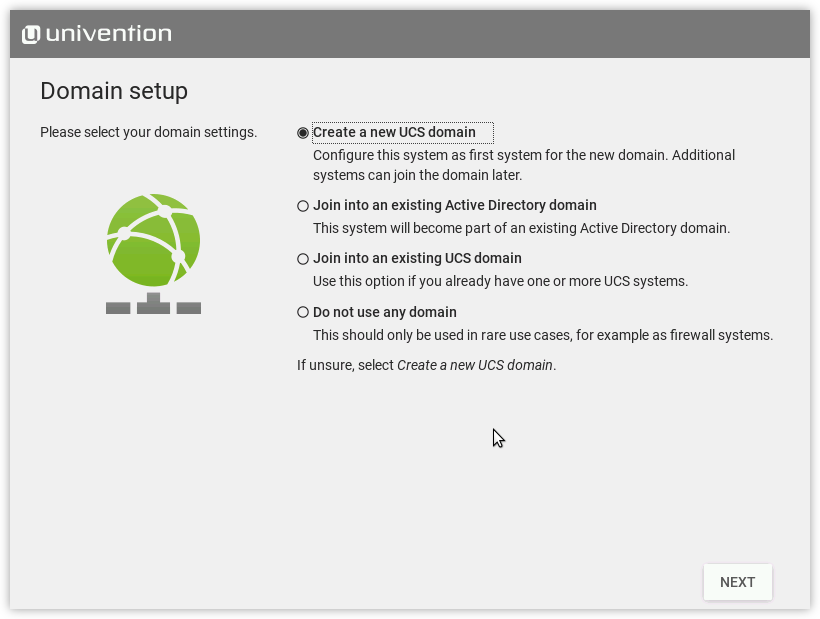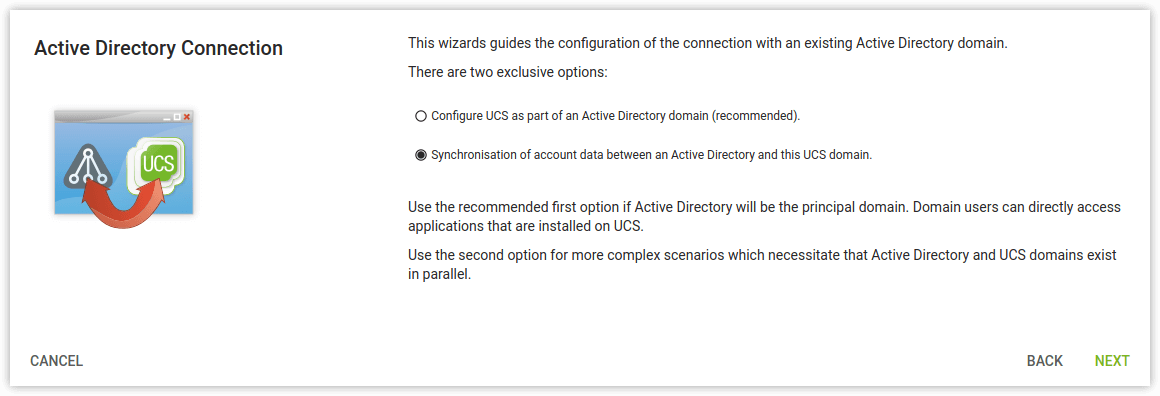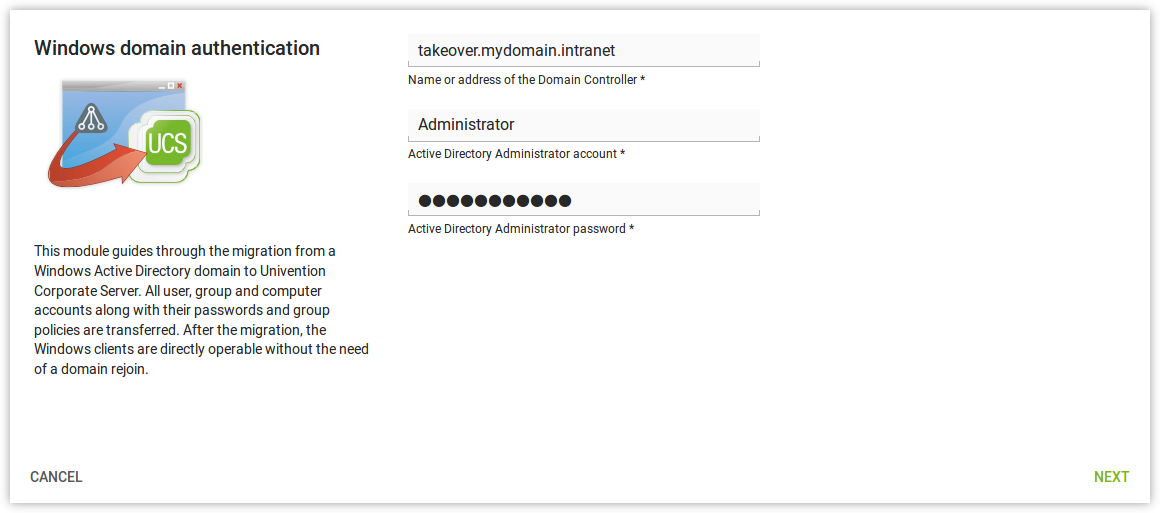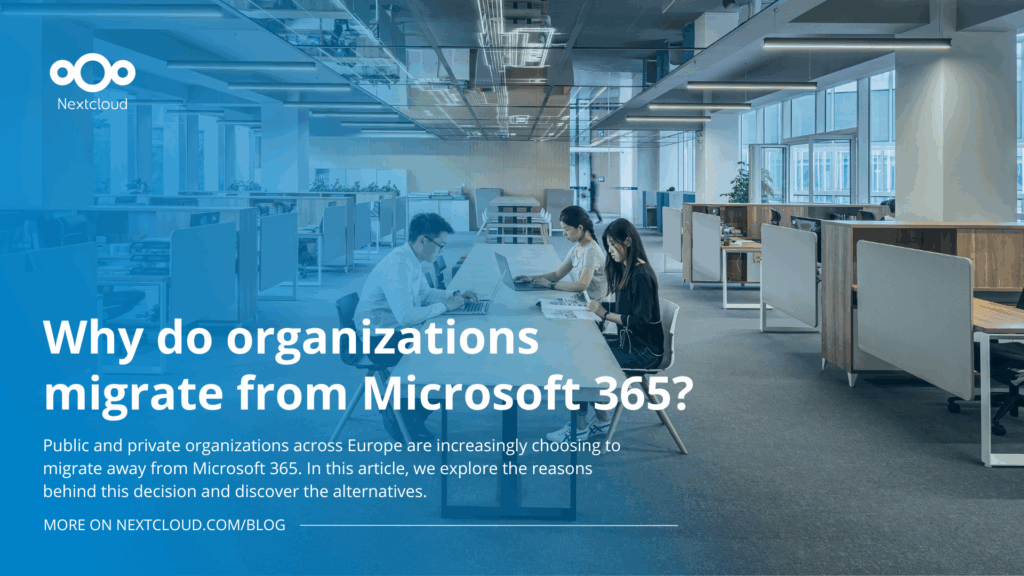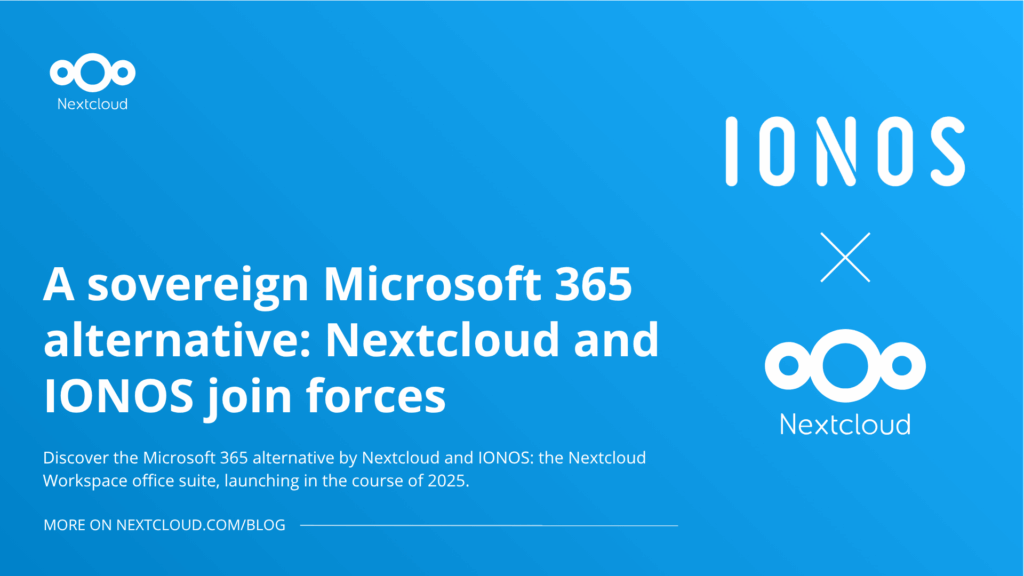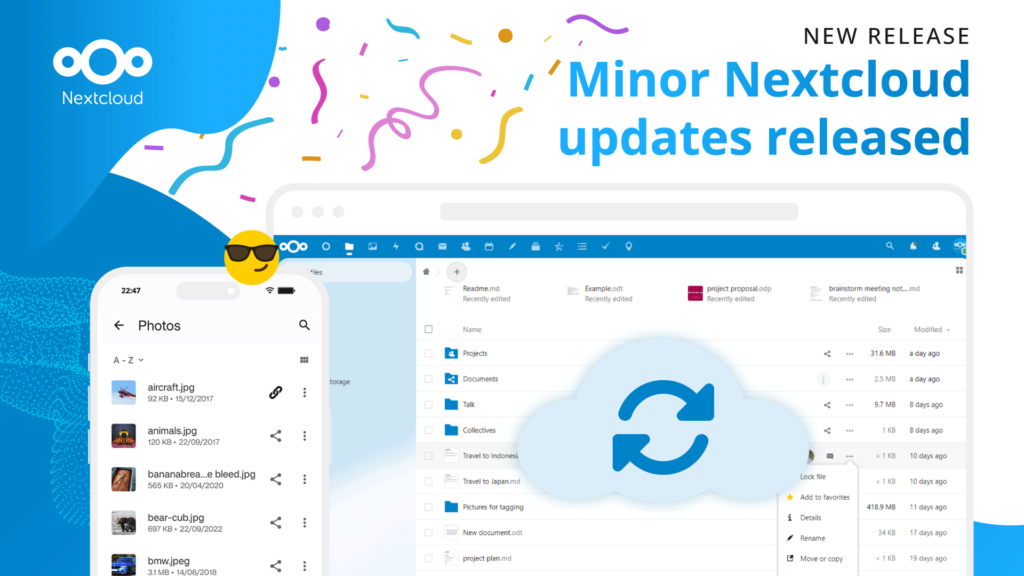Integrating Nextcloud in your Active Directory domain with UCS
A lot of small businesses run a Microsoft Windows server with Active Directory to manage their users. Nextcloud has extensive user management with built-in LDAP and Active Directory support, but setting it up is a bit of a hassle. Univention Corporate Server (UCS), a popular platform to run Nextcloud on for small and medium sized businesses, makes this integration a lot easier.
Running Nextcloud in a small business
Nextcloud runs on a wide variety of Linux servers like Ubuntu, RHEL/CentOS or SUSE Linux Enterprise/LEAP. For a company that runs a Windows server, it might perhaps make sense to consolidate their services and run Nextcloud in a virtual machine.
After the basic installation, the administrator setting up Nextcloud has to go to the user management settings and connect to the Active Directory services to be able to manage users in one place, on the Windows Server.
Univention makes this easier
Univention Corporate Server makes this process easier. Companies can simply get a virtual machine image with UCS and Nextcloud preconfigured. Nextcloud is integrated with the built-in LDAP directory and during installation, the administrator can add UCS to an existing Active Directory environment. In this mode UCS will work as a kind of proxy for user identities in Active Directory, seamlessly connecting Nextcloud to the Windows server without any manual work. (see the documentation here)
An alternative approach would be to setup a separate environment based on UCS, a new Active Directory domain. This new domain can be connected to an existing Active Directory domain to share and synchronize user and group objects. This is not an Active Directory Federation. The two separate domains just share the same information on identities. (see the documentation here)
Running UCS already?
Companies already running UCS can install Nextcloud easily from the Univention App Center (and throw in Collabora Online with another click, if they like, just as is possible with the Appliance after installation). Nextcloud will automatically be integrated in their existing UCS domain, making Nextcloud available for their users. An existing UCS domain can be connected with the Active Directory Connection app, also available in the App Center.
Migrating away from Active Directory
UCS even supports migrations away from Microsoft Active Directory. With the AD Takeover app UCS allows a drop-in replacement of the Windows Server’s user directory. There are a lot of reasons why organizations think about getting rid of their Microsoft Windows server. It may be costs, Microsoft’s product politics, better integration with other software they run or they simply want to increase their decision options and take back control. (see documentation here)
Simplify management
Running Nextcloud with UCS simplifies installation and maintenance of Nextcloud itself and it centralizes user management. Updates on the platform are developed by Nextcloud engineers and for larger installations it is easy to purchase a Nextcloud Subscription through the platform.






